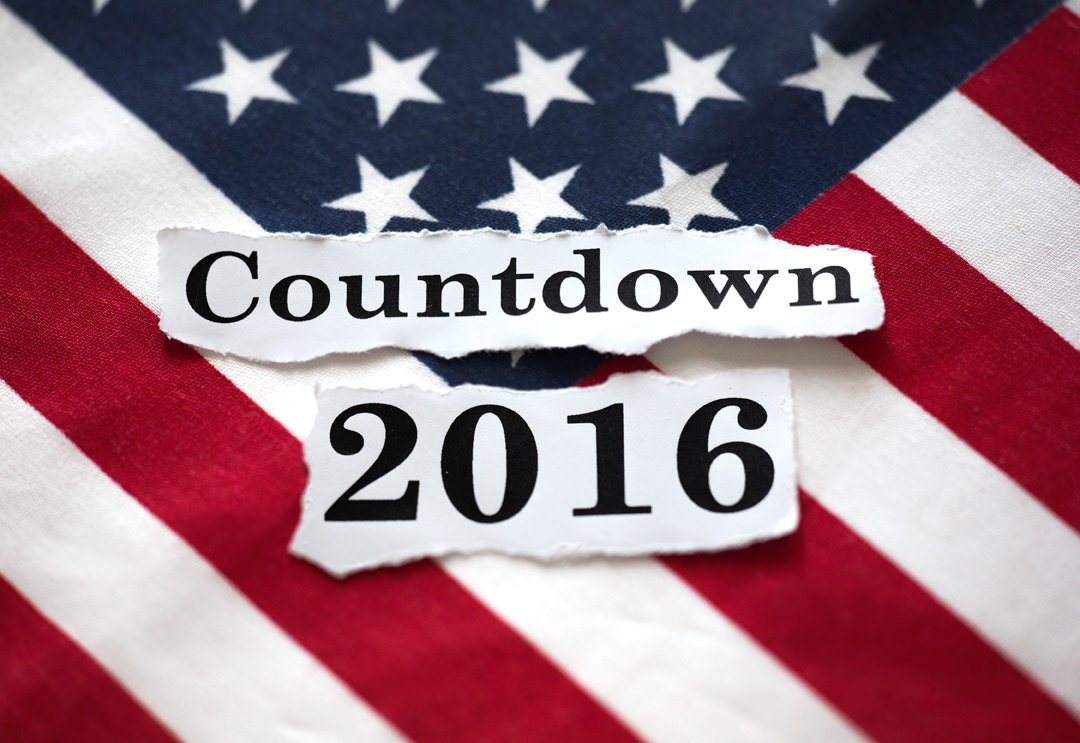A Look Ahead: Politics and the Economic Landscape
A Look Ahead: Politics and the Economic Landscape

By Joe Solmonese
Even though the 2014 election season is barely behind us, the landscape for 2016 is already beginning to take shape. The presumptive favorite on the Democratic side is former Secretary of State Hillary Clinton. Most Democratic primary polls indicate Clinton has a 60 percent chance to win the nomination with only Vice President Joe Biden’s and Sen. Elizabeth Warren’s chances registering in the high single digits. Others who have expressed interest include Vermont Sen. Bernie Sanders, former Virginia Sen. Jim Webb and former Maryland Gov. Martin O’Malley. And while a nominal primary process will likely unfold, most pundits agree that it will only serve to strengthen Clinton as a general election candidate.
On the Republican side, the field appears to be solidifying around a handful of current and former governors. Former Florida Gov. Jeb Bush and Wisconsin Gov. Scott Walker lead most polls, with New Jersey Gov. Chris Christie trailing them in third place. There also appears to be a large second tier group of GOP hopefuls that includes Gov. Bobby Jindal of Louisiana and former Texas Gov. Rick Perry. This group also includes Kentucky Sen. Rand Paul, Florida Sen. Marco Rubio, Texas Sen. Ted Cruz, as well as retired neurosurgeon and author Ben Carson, among others.
Former Gov. Bush leads among moderates while Gov. Walker leads among conservatives. And both fare the strongest among their fellow Republicans against Clinton in a general election match-up.
While there is an ongoing debate among Republicans about whether a moderate or a conservative would be a stronger general election candidate, there seems to be little doubt that a governor is an historically good choice. As political analyst and blogger Nate Silver points out, running for president is a significant, life-changing and all-encompassing undertaking. It requires managing a large staff and balancing the books of a multimillion-dollar operation. He also notes that Congress is an inherently unpopular institution. Governors can escape this burden — they can run as Washington outsiders, and they can run more on their individual records.
Given all of that, it’s not surprising that most institutional Republicans – and a good number of major funders – appear to be with former Gov. Jeb Bush. He has a personal and professional profile, as well as a more moderate issues platform, that could serve him well in the general election. And while a recent Wall Street Journal/NBC News poll shows a strongly divided field that gives an edge to Walker and Rubio, pollster Fred Yang notes that Bush is essentially where former Massachusetts Gov. Mitt Romney was in terms of support at this point in the last presidential race. He has room to grow and time to make his case to Republican primary voters.
Ironically, the nagging vulnerability for Jeb Bush is one that also presents the same challenge to Hillary Clinton. Both represent American political dynasties and there is a degree of voter fatigue around both of their candidacies. Polls reveal 51 percent view Clinton more as a return to the past than a candidate for the future, compared with 44 percent who say the reverse.
For Bush, 60 percent of the country sees the first-time White House hopeful as a figure representing the past, compared with 27 percent who agreed with the statement that he would bring “new ideas and vision the country will need for the future.”
Little is certain about this upcoming presidential contest. And like those in the past, every day the landscape will shift and all that we predict is likely to be upended. But as Jeb Bush and Hillary Clinton work hard to become their party’s nominee, one thing is certain: they are both hoping to square off against one another in the general election. While it potentially mitigates what could become each of their greatest vulnerabilities, it still promises to be a fascinating contest to watch unfold.
